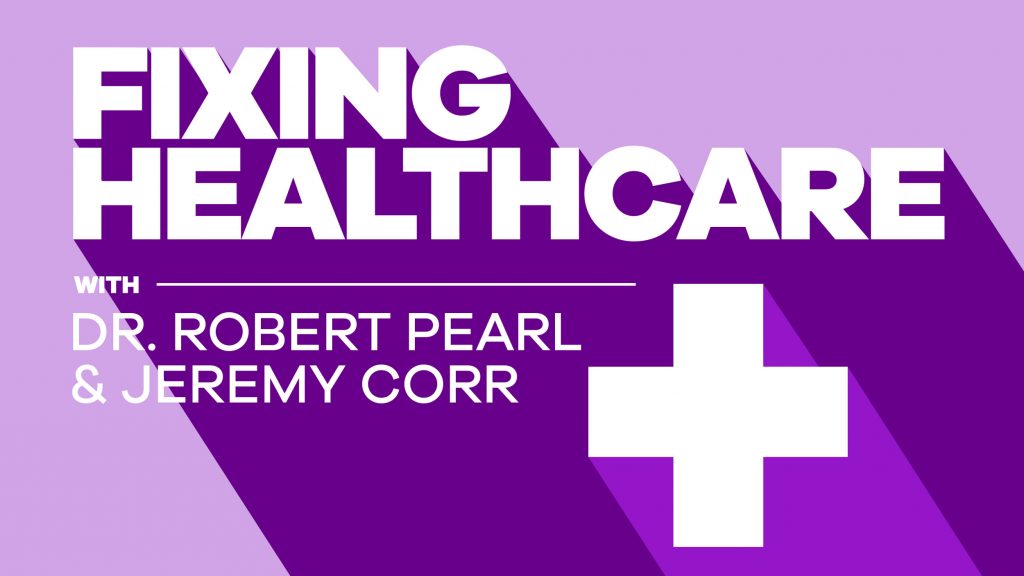At the end of Episode 18, Fixing Healthcare co-hosts Dr. Robert Pearl and Jeremy Corr turned to listeners for ideas and suggestions about the role of government in healthcare.
This regular feature of season three comes by way of the new Fixing Healthcare Survey. Please click the link and give us your input. Robert and Jeremy might share your ideas on a future episode.
This month, we heard from Ian Sacks, Ladd Udy and Ryan Tolman who offered ideas for improving existing government-run healthcare programs like Medicare, Medicaid and the VA.
Transcript from Fixing Healthcare (Episode 18)
Jeremy Corr: Before we go, let’s take a minute to read some of the listener feedback from the Fixing Healthcare survey. This season, we’re interested in your thoughts on this important question: “How can the U.S. government best improve healthcare?” I encourage you, our listeners, to weigh in and submit your ideas at robertpearlmd.com. Earlier this season, we heard from listeners who advocate for reducing the role of government in healthcare. For this episode, we hear from listeners Ian Sacks, Ladd Udy and Ryan Tolman who want to see the government deliver smarter and more effective healthcare solutions.
Ian believes the government can improve its VA and Medicare programs with assistance from proven, private sector leaders. Ladd says improvements can begin by changing how the U.S. government pays for care within Medicare and Medicaid. Finally, Ryan believes the U.S. government can make the shift to value payments easier by focusing and investing in preventative health. To do so, it will need to place a much larger emphasis on primary care.
Robbie, here are three different ways to strengthen existing government programs and models. What do you think about our listeners’ suggestions?
Robert Pearl: As always, our listeners have provided well-thought ideas. Like Ian, I believe that leadership is essential. However, before the government looks to hiring private-sector expertise, it needs to figure out whether it really wants to play a bigger role in the delivery system. So far, it has shied away from intervening with doctors and hospitals. One option would be for the government not only to fund healthcare, but also to provide the care directly. The other option would be to remain predominantly a purchaser of healthcare. In either case, experienced, leadership expertise would be valuable.
Like Ladd, I agree that the government needs to shift how it pays for Medicare and Medicaid. In particular, the fee-for-service approach is doomed to fail because invariably the amount of care provided ends up being more than patients need. In a Mayo Clinic study, across the country, 30% of everything that doctors do has been shown to be of little or no value to patients.
And as part of the government’s role, in situations where hospitals and drug companies have gained monopolistic control, it will need to impose the same types of restrictions and penalties that it does in other industries. Finally, like Ryan, I agree that we need more physicians in primary care and fewer in specialty areas. Primary care has been proven to be almost three times more impactful in terms of people’s health and longevity, and yet our nation now has 11% fewer primary care doctors per capita than we did 20 years ago.
Jeremy Corr: Once again, thanks to Ian Sacks, Ladd Udy, Ryan Tolman and everyone who participated in the Fixing Healthcare survey on RobertPearlMD.com.
* * *
READ: Full transcript for Episode 18 with Eric Swalwell
Fixing Healthcare is a co-production of Dr. Robert Pearl and Jeremy Corr. Subscribe to the show via Apple Podcasts or wherever you find podcasts. Join the conversation or suggest a guest by following the show on Twitter and LinkedIn.

